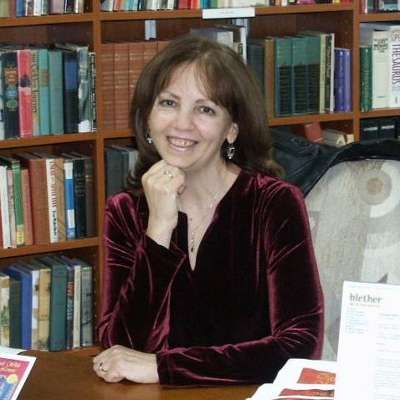Seattle Opera General Director Christina Scheppelmann describes Puccini’s La bohème as “quintessentially opera... the ideal performance for reconnecting with this art form or experiencing it for the first time.” Scrupulous health and safety precautions did not detract from the audience’s delight in witnessing the company’s first live in-person performance at McCaw Hall since the pandemic lockdown. The choice of a story about artists struggling against enormous odds was significantly relevant to this singular moment in the company’s history. Scheppelmann’s rousing speech preceding the first act, emphasizing the importance of live music with the key words “We’re here because of science,” received approving cheers from an audience eager to witness the Seattle Opera Phoenix rising.
A troupe that included both previous favorites and voices new to the city’s opera-loving community gave the audience the experience they were hoping for. As the always relatable Mimì, soprano Karen Vuong, who played Tina in the company’s much-praised Flight, was appealing in her nuanced dramatic portrayal. However, her over-active vibrato and erratic pitch diminished the overall effect of her performance. Tenor Yosep Kang made his company debut as suffering writer Rodolfo. His resonant voice was at its best in the opening scene, where its brightness and vigor were a definite plus. It was less effective in the more lyrical passages, but in general he gave quite a positive impression.
A familiar and admired presence in such operas as The (R)evolution of Steve Jobs and Eugene Onegin, John Moore brought his lustrous baritone to the role of Marcello. Watching and listening to Moore is always a treat. His voice is lush, consistent from top to bottom, and his energetic acting heightened the characterization of the frustrated artist. The scene-stealing performances of soprano Ginger Costa-Jackson have won over Seattle audiences in her portrayals of such heroines as Carmen and Cenerentola and her rendition of Musetta was no exception. Vocally strong, dramatically and comically spirited, Costa-Jackson is the whole package, and as usual she lit up the stage in every attention-grabbing moment. Familiar to Seattle audiences, Ashraf Sewaillam brought a special combination of insight and physical comedy to the role of Colline. His poignant, vocally lovely rendition of “Vecchia zimarra” was touchingly imbued with both deep emotion and resignation. Eugene Villanueva (company debut), and Barry Johnson rounded out the cast as Schaunard and Alcindoro–Benoît, respectively, supporting the principals with strong portrayals.
On the podium, Joseph Colaneri made an impressive company debut. Fully in command of an orchestra that was understandably diminished in its forces, his magnanimous gestures produced a sound that was warm and effulgent.
These days, I always cringe at the thought of a beloved classic being given a contemporary setting. It was a relief to see lavish and colorful sets and costumes that reflected a traditional approach to the Golden Age in the world’s most romantic city. The artists’ garret was appropriately meager. The Momus Café looked like a Belle Époque dream of warmth, color and luminosity. The snow-dusted Act 3 set and lighting struck a perfect balance between the chill of a blue-white winter and the glow of the two tragic lovers’ smitten faces. The fine-looking costumes beautifully contrasted the lushness of Musetta’s Alcindoro-subsidized silks with the street scene characters’ jaunty everyday attire and the penniless artists’ barely adequate garments.
David Gately, who triumphed against last year’s pandemic adversity to bring off a creative virtual Elixir of Love, brought his characteristic ingenuity to the direction. He demonstrated that he knows how to contrast the extremes of drama and comedy. Such appealing touches as the two women of ill-repute flimflamming the down-and-out drunkard, and Marcello’s frustrated flinging of Musetta’s shawl to the ground at the end of Act 3, showed that Gately understands the charm that fine detail adds to the staging of a well-worn classic.
In the end, what matters most is Puccini’s music, and the omission of the children’s appearances in Act 2, though understandable under the circumstances, was jarring. But situational compromise notwithstanding, Bohème never gets old, and this Seattle Opera production is well worth seeing.




